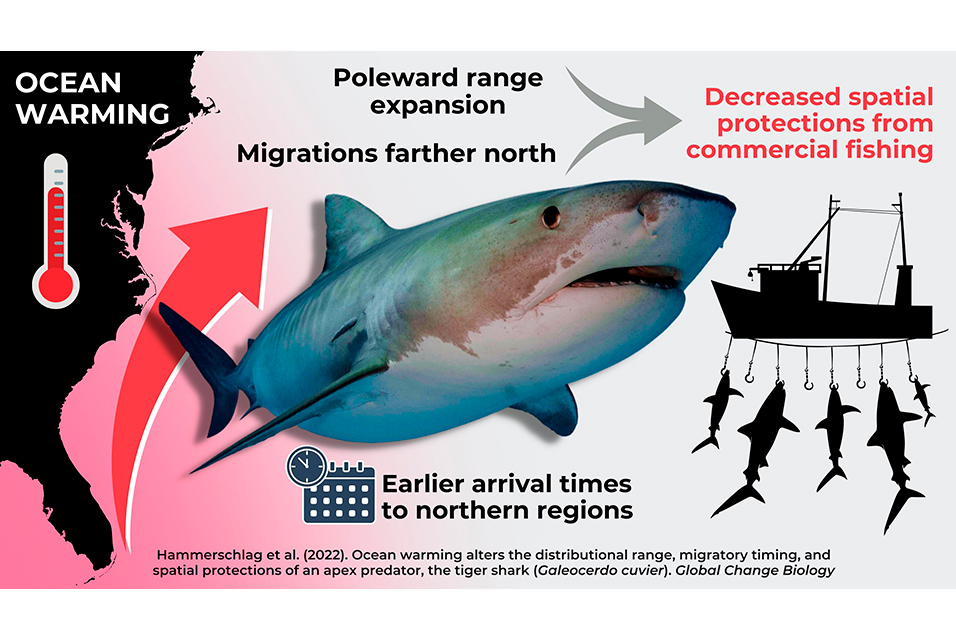CORAL GABLES, FL.- A new study led by scientists at the
University of Miami Rosenstiel School of Marine and Atmospheric Science revealed that the locations and timing of tiger shark movement in the western North Atlantic Ocean have changed from rising ocean temperatures. These climate-driven changes have subsequently shifted tiger shark movements outside of protected areas, leaving the sharks more vulnerable to commercial fishing.
The movements of tiger sharks, (Galeocerdo cuvier) the largest cold-blooded apex predator in tropical and warm-temperate seas, are constrained by the need to stay in warm waters. While waters off the U.S. northeast coastline have historically been too cold for tiger sharks, temperatures have warmed significantly in recent years making them suitable for the tiger shark.
"Tiger shark annual migrations have expanded poleward, paralleling rising water temperatures," said Neil Hammerschlag, director of the UM Shark Research and Conservation Program and lead author of the study. "These results have consequences for tiger shark conservation, since shifts in their movements outside of marine protected areas may leave them more vulnerable to commercial fishing."
Hammerschlag and the research team discovered these climate-driven changes by analyzing nine years of tracking data from satellite tagged tiger sharks, combined with nearly forty years of conventional tag and recapture information supplied by the National Oceanic and Atmospheric Administration (NOAA) Cooperative Shark Tagging Program and satellite derived sea-surface temperature data.
The study found that during the last decade, when ocean temperatures were the warmest on record, for every one-degree Celsius increase in water temperatures above average, tiger shark migrations extended farther poleward by roughly 250 miles (over 400 kilometers) and sharks also migrated about 14 days earlier to waters off the U.S. northeastern coast.
The results may have greater ecosystem implications. "Given their role as apex predators, these changes to tiger shark movements may alter predator-prey interactions, leading to ecological imbalances, and more frequent encounters with humans." said Hammerschlag.
The study, titled "Ocean warming alters the distributional range, migratory timing, and spatial protections of an apex predator, the tiger shark (Galeocerdo cuvier)" was published January 13, 2022 in the journal Global Change Biology.
The study's authors include: Neil Hammerschlag, Laura McDonnell, Mitchell Rider, Ben Kirtman from the UM Rosenstiel School; Garrett Street and Melanie Boudreau from Mississippi State University; Elliott Hazen, Lisa Natanson, Camilla McCandless from NOAA Fisheries; Austin J. Gallagher from Beneath the Waves; and Malin Pinsky from Rutgers University.









